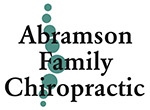Smoking and Back Pain
Using data from the UK Biobank study, researchers report that smoking is a risk factor for low back pain. On the other hand, quitting smoking can reduce one’s risk for low back pain over time. Journal of Global Health, November 2023
Detergent Pod Poisoning Still a Threat for Kids
Despite the adoption of voluntary industry standards, poison control centers throughout the United States continue to receive one call every 44 minutes regard a child being harmed through inappropriate exposure to a liquid laundry detergent pod. Health experts have recommended manufacturers take more steps to create child-resistant packaging, as well as reformulating the detergent within the pods to be less toxic. Clinical Toxicology, January 2024
Plant-Based Diet May Affect Pregnancy and Birth Outcomes
While further studies are necessary, an analysis of data concerning 65,872 pregnancies found that the women who identified as vegans were more likely to develop preeclampsia, and their babies weighed an average of 240 grams less than the other offspring from the study group. Acta Obstetricia Et Gynecologica Scandinavica, January 2024
Try an Activity Tracker
Central Queensland University’s Dr. Corneel Vandelanotte notes that activity trackers can act as a useful tool to help an individual become more physically active and to reach their fitness goals. Dr. Vandelanotte adds that while there are sophisticated devices that can track resting heart rate, heart rate during exercise, maximal heart rate, and VO2 max, a basic activity tracker that can monitor total steps and activity minutes will suffice for most people. The Conversation, January 2024
Two Therapies Help Heart Failure Patients Who Suffer from Depression
Behavioral activation psychotherapy is a form of therapy that focuses on activities a patient enjoys to help reduce their depressive symptoms. A recent study that included 400 heart failure patients with depression found that behavioral activation psychotherapy worked equally well for addressing depression as antidepressants, offering a potential alternative for patients who don’t respond to such medications or prefer a non-pharmaceutical approach. JAMA Network Open, January 2024
Benefits of Nose Breathing
In a recent experiment that included 20 young adults, researchers found that those who breathed through their nose had a lower blood pressure reading than participants who breathed through their mouths. The members of the nose breathing group also found it easier to relax, suggesting nose breathing also benefits the autonomic nervous system. American Journal of Physiology-Regulatory, Integrative and Comparative Physiology, January 2024
“I wanna live 'til I die, no more, no less.” ~ Eddie Izzard
This information should not be substituted for medical or chiropractic advice. Any and all health care concerns, decisions, and actions must be done through the advice and counsel of a health care professional who is familiar with your updated medical history.
